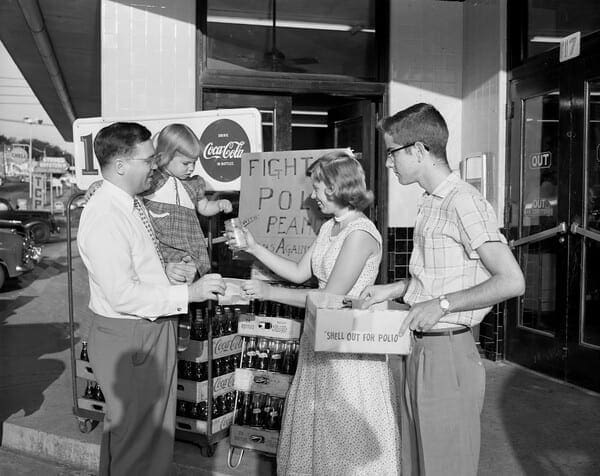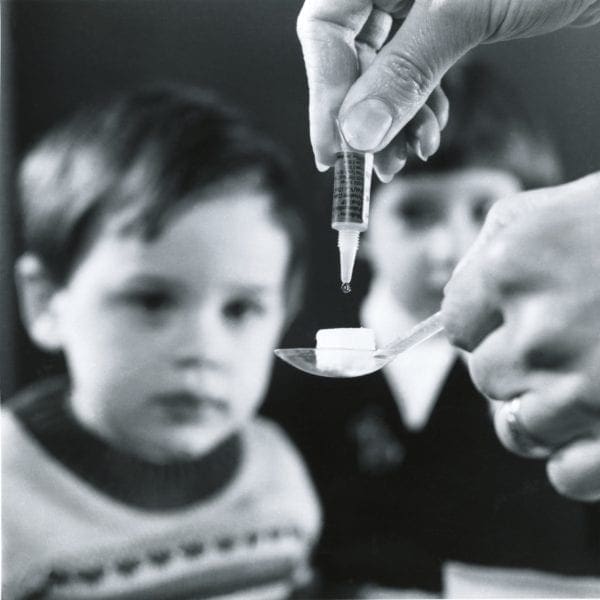I turned 15 during the summer of 1955, and I lived in the Point Breeze neighborhood of Bethany, W.Va., a small college town nestled among the rolling hills and along the banks of the Buffalo Creek. Compared to what it is now, Point Breeze was somewhat unsettled, and thus it offered my two playmates and me plenty of wide-open spaces to play baseball or cowboys, depending on what day it was.
We ran and played hard in those warm summer days, but no matter where we were or what we were doing, we had to observe one ironclad rule – the mid-afternoon rest between 1:30 to 3 p.m. All play ceased so we could come into the house and lie on our bed. We didn’t have to go to sleep, but our feet were not allowed to hit the floor during this time. Our parents imposed and began enforcing this unpopular mandate beginning in 1952, when the polio epidemic hit.
This crippling disease struck almost 132,000 victims in this country from 1952 until 1954 and killed 5,963 people. In addition to our daily rest, we had to avoid crowds, stay away from public swimming pools, and refrain from using public drinking fountains. It was a scary time to be alive. And then the miracle occurred. On April 12, 1955, the world learned that Dr. Jonas Salk had developed a successful vaccine against polio, and mass immunizations began around the world.

Army of Heroes
Back then Dr. Salk became an instant hero, and now in the midst of the horrifying COVID-19 virus pandemic, we certainly could use another Jonas Salk moment. But while we wait for it, a furious battle is being waged against the virus by an army of heroes. They risk their lives every day trying to save others’ lives, and they defy exhaustion by often working around the clock.
This horrific CODV-19 pandemic has silently and swiftly slithered into countries around the world leaving death, illness, unemployment, fear, confusion, and uncertainty in its wake. I often have the feeling that I’m living within the pages of a Stephen King novel. There is no question that something no one can see has crippled our world. But in the face of all this one thing remains constant.
Every day we are bombarded by the horrifying statistics of how the death toll has increased to more than 60,000 worldwide and 5,807 in the USA and how many new cases of the virus have arisen to more than 1 million worldwide and more than 277,000 in the USA. But in the face of all this one thing remains constant.
We see that the most recent statistics show more than 6 million Americans have lost their jobs. But in the face of all this one thing remains constant.
The rampant spread of the virus has forced the cancelation, postponement, or rescheduling nationwide of school years, graduation ceremonies, scholastic, collegiate, and professional sporting seasons and events. But in the face of all this one thing remains constant.
And that thing remaining constant in the chaos spawned by the virus is the indefatigable effort of the front-line healthcare workers who daily put their lives on the line in their unselfish fight to save the lives of others and offer care and comfort for the unfortunate victims who ultimately will lose their battle against this insidious disease.
The Front
Sufficient verbiage does not exist to describe their dedication and bravery in ministering to the myriad patients they treat every day. They all are heroes in the truest sense of the word, and simply saying thank you seems an insufficient way to express our sincerest and heartfelt gratitude for their work and service. They are very special people and a credit to their profession, and it is they who will finally pull us through this horrendous time.
In his Nobel Prize acceptance speech, William Faulkner said, “I believe that man will not merely endure; he will prevail.”
And through efforts of our front-line healthcare workers, we eventually will prevail.


